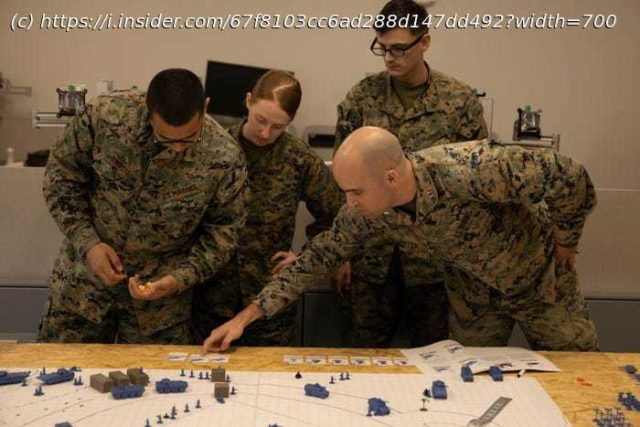A Marine Corps general says everyone should be wargaming. He also says officers and enlisted shouldn’t be afraid to fail.
A Marine Corps general said this week that officers and troops can’t shy away from wargaming, tough exercises in critical thinking.
They also can’t be afraid to lose, he said.
« Why isn’t everybody wargaming today, right now? » Brig. Gen. Matthew Tracy, the commanding general for the Corps’ Education Command, asked Tuesday at the Sea, Air, and Space symposium, a big annual event for military and defense industry insiders.
« We know it’s the best way to learn », Tracy said.
« We know they need to get some reps. »
Some military leaders might be holding back from making wargaming more common because they fear losing in front of fellow Marines, including junior troops. It will take some bold leadership to help overcome fears of embarrassment, he said.
« We have to get down behind the weapon and show that it’s okay to fail. » That’s key to leadership.What is wargaming?
Thoughts of military wargames might bring to mind images of senior military officers clustered around a table with figurines representing maneuvering units. That’s not wrong. Such games are still important for wargaming.
But nowadays, wargames also come in boxes, on computers, and even in the form of plain flash cards. Some are also played in the field with red and blue teams and aggressor squadrons.
They’re for all ranks, but not as commonplace as some would like to see. Leaders like Tracy don’t just want to see colonels sweating through these mental gymnastics. They also want to see the trigger-pullers at the lowest tactical levels involved.
At the symposium, a young Marine officer demonstrated the latest computer-based wargame while nearby cadets from the Naval Academy played an almost human-size version of a game that resembled the classic board game « Battleship. »
Other games included increasingly complex elements for troops to consider, such as friendly and enemy nations’ economic and diplomatic concerns, or how another country’s civilians might react to the presence of US troops.






